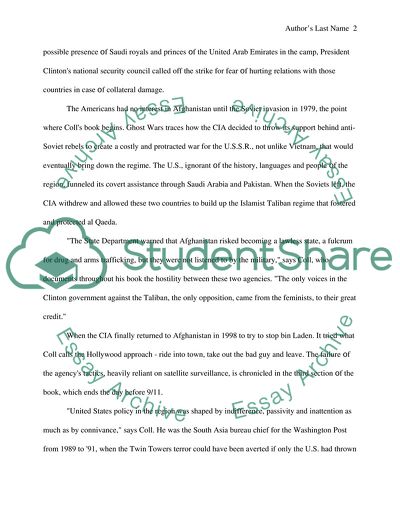Cite this document
(Steve Coll's Ghost Wars Book Report/Review Example | Topics and Well Written Essays - 2000 words, n.d.)
Steve Coll's Ghost Wars Book Report/Review Example | Topics and Well Written Essays - 2000 words. Retrieved from https://studentshare.org/military/1713771-stephen-colls-ghost-wars-per-our-previous-e-mail-correspondence
Steve Coll's Ghost Wars Book Report/Review Example | Topics and Well Written Essays - 2000 words. Retrieved from https://studentshare.org/military/1713771-stephen-colls-ghost-wars-per-our-previous-e-mail-correspondence
(Steve Coll'S Ghost Wars Book Report/Review Example | Topics and Well Written Essays - 2000 Words)
Steve Coll'S Ghost Wars Book Report/Review Example | Topics and Well Written Essays - 2000 Words. https://studentshare.org/military/1713771-stephen-colls-ghost-wars-per-our-previous-e-mail-correspondence.
Steve Coll'S Ghost Wars Book Report/Review Example | Topics and Well Written Essays - 2000 Words. https://studentshare.org/military/1713771-stephen-colls-ghost-wars-per-our-previous-e-mail-correspondence.
“Steve Coll'S Ghost Wars Book Report/Review Example | Topics and Well Written Essays - 2000 Words”. https://studentshare.org/military/1713771-stephen-colls-ghost-wars-per-our-previous-e-mail-correspondence.


